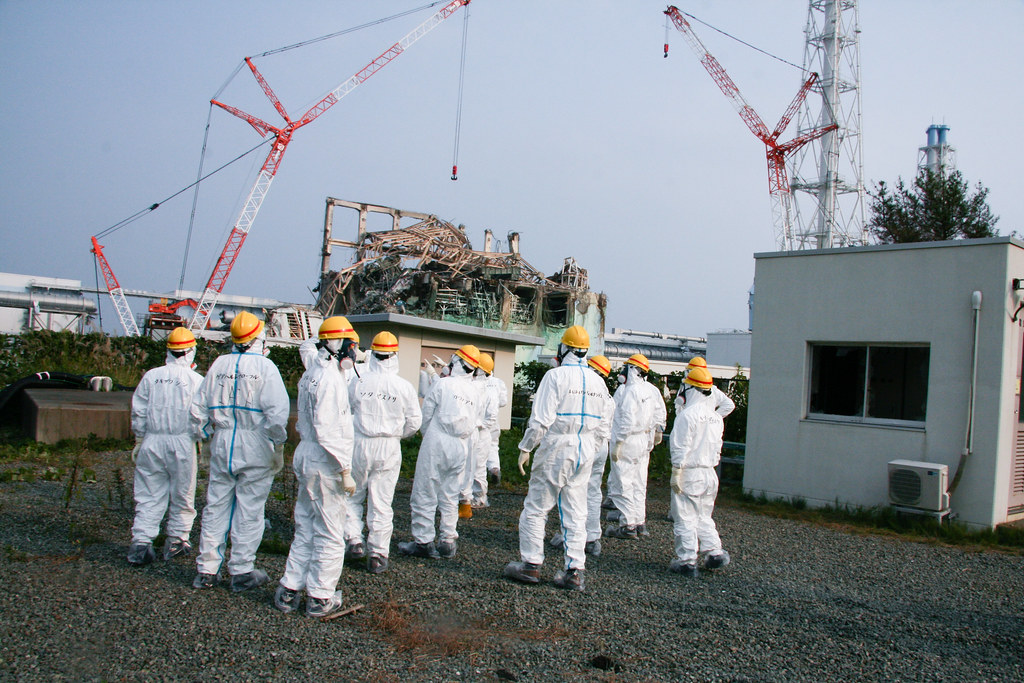Bolivia, Paraguay to strengthen nuclear security at new irradiation facilities
The facilities use radioactive sources, which could be misused in the wrong hands, and therefore need to be protected.

Bolivia and Paraguay are finalizing the design, selection and integration of the most appropriate physical protection measures against potential malicious acts at their new irradiation facilities, with support from the IAEA. These facilities are used to irradiate items such as medical devices for sterilization and fruits for the destruction of pest larvae before exports.
The facilities use radioactive sources, which could be misused in the wrong hands, and therefore need to be protected. Putting in place physical protection systems is one of the most important milestones in the process of commissioning such facilities.
Bolivia requested IAEA assistance to enhance the physical protection of a new multi-purpose gamma irradiator prior to the delivery of high-activity radioactive sources next year. “The new gamma irradiation multipurpose complex will contribute to food safety, increasing agro-industrial productivity, food export and preservation, seed improvement and pest control,” explained Hortensia Jiménez Rivera, Director General of the Bolivian Nuclear Energy Agency (ABEN). “Ensuring that the radioactive sources that will be used at the facility are secure is a priority both for us and the regulatory body.”
Paraguay also requested assistance for the protection of the county’s first irradiator for research on tissue irradiation, blood irradiation, plant breeding and food safety, which is planned to become operational next year. Mario José Gutiérrez Simón, Minister and Executive Secretary of the Radiological and Nuclear Regulatory Authority in Paraguay, explained that the country’s first irradiator will help improve medical treatment services in Paraguay. “While the focus is, of course, on development and making these important services available, this cannot be fully achieved without considering the vital aspects of safety and security. The support provided by the IAEA will help us to do that.”
The IAEA sent experts to the facilities under construction and met with key stakeholders to support the establishment of physical protection measures at the sites. The guidance and training of personnel have enabled local experts to design optimized security systems.
“These facilities, once operational, will be using category 1 radioactive sources, which are considered to be dangerous if not managed safely and securely,” said Elena Buglova, Director of the IAEA Division of Nuclear Security, adding that, “we are very committed to support all States in improved physical protection as part of our long-term capacity building efforts in the secure use of nuclear technology.”
Regulators and operators in both countries worked closely with IAEA experts to define suitable physical protection systems, including CCTV surveillance, locks, access controls and intrusion detectors, to protect radioactive material against acts of theft and sabotage. This assistance was provided in tandem with support under the IAEA technical cooperation programme to facilitate the transfer of nuclear technology for peaceful uses.
IAEA assistance in nuclear security Nuclear security focuses on the prevention and detection of, and response to, theft, sabotage, unauthorized access, illegal transfer or other malicious acts involving nuclear material, other radioactive material and associated facilities.
The IAEA assists States, upon request, to enhance nuclear security by strengthening the physical protection of facilities with high activity radioactive sources, to reduce related security risks. This technical assistance is financed exclusively through the Nuclear Security Fund, in support of activities to strengthen national capacities to use radioactive sources for beneficial purposes for sustained socioeconomic development. Countries can identify any assistance needed to support them through the Integrated Nuclear Security Support Plan mechanism.
- READ MORE ON:
- Bolivia
- IAEA
- Paraguay
- Bolivian Nuclear Energy Agency
- Elena Buglova
ALSO READ
IAEA Advances Human Resource Development for Sustainable Nuclear Power Expansion
IAEA Raises Concerns Over Risks to Ukraine’s Nuclear Safety Amid Energy Infrastructure Attacks
IAEA Expands Radiation Emergency Preparedness Training with Spanish-Language School in Buenos Aires
IAEA Launches E-Learning Series on Nuclear Safety Standards
IAEA Launches New Regulatory Infrastructure Development Project to Boost Radiation Safety and Nuclear Security in Asia-Pacific










